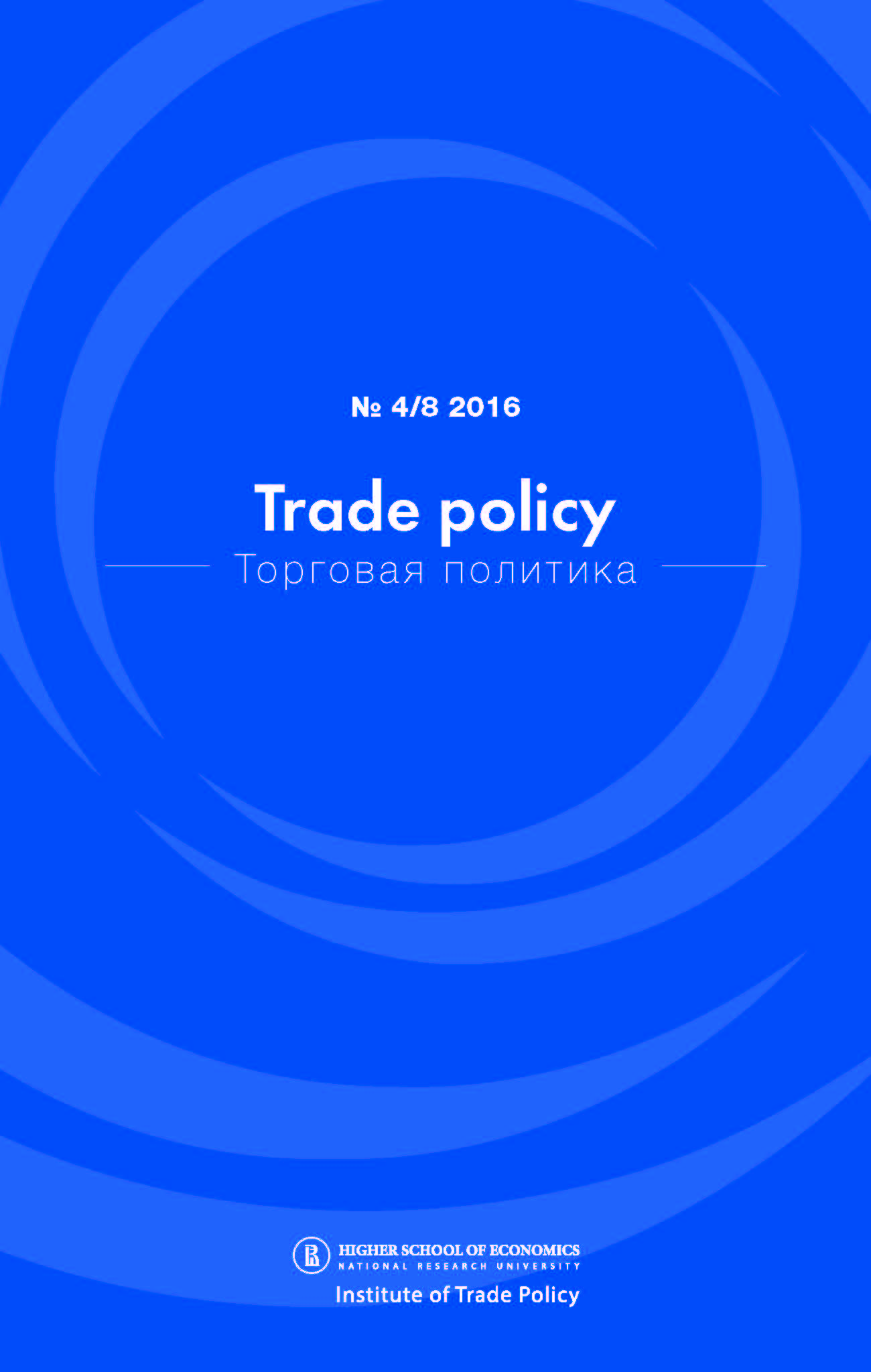
Message from Editor-in-Chief
Dear readers, we are glad to present the English edition of our “Trade Policy” journal. The first Russian edition of the journal was published at the beginning of 2015. It became the major specialized periodical in Russia devoted to trade policy and topical issues of regulation of international trade, investment, foreign economic cooperation, etc. at national, multilateral and global levels. Among authors of the journal there are the most respected experts representing academic, business and expert circles, as well as officials of the Russian government and Eurasian Economic Commission. Our colleagues from other countries also make an important contribution as our authors.
The main topics discussed in our journal are: the theory of trade policy and multilateral regulation; trade policy instruments and implementation practices; global issues and international trade regulation; comments on trade policy made by the leading experts, government and international officials; reviews and analytical
materials on current trade policy issues and events; materials on conferences, seminar and other events devoted to international trade policy.
The journal is published by the National Research University Higher School of Economics (HSE). The editorial office operates within the HSE Trade Policy Institute. We publish the journal in cooperation with colleagues of International Center for Trade and Sustainable Development (ICTSD), Geneva. We are very thankful to our foreign colleagues for their help and cooperation.
We consider the trade policy to be one of the key elements of activities of any government in the sphere of international economic relations. It determines the conditions of participation of a country in international division of labor and resources, as well as its position in international trade in goods and services within
the framework of the global market.
We hope that the English edition of our journal would not only be interesting and useful for readers abroad but also for those in Russia and CIS countries. It aims to improve mutual understanding among experts, officials, scholars and businessmen who specialize in international trade and trade policy. We hope that our English edition would provide more opportunities for both authors from Russia and the EAEU countries to present their views to foreign English speaking readers, and also for our foreign authors to address their colleagues in Russia and CIS countries directly.
In the first English edition we are glad to present articles of our authors from Kazakhstan, Kyrgyzstan and Russia. The main general topics are the development of trade of the EAEU countries, integration processes within the EAEU and the EU, and economic development and trade of some countries which are important trade partners of Russia. Furthermore, the topic of application and effects of trade policy instruments is presented in this issue as a traditional element of the journal.
Two articles prepared by our colleagues from Kazakhstan are devoted to integration within the EAEU. The first one covers general problems of industrial cooperation and possibilities of formation of value added chains in the EAEU countries in particular. The second article deals with issues of the automotive industry development in the EAEU and possible trade policy measures to improve the sector’s development.
Our colleagues from Kyrgyzstan prepared an article containing a detailed analysis of trade relations between Kyrgyzstan and the EAEU countries, as well as with some key trade partners outside the EAEU, such as China and Iran. Participation of Kyrgyzstan in the EAEU is a special emphasis of the article.
Two more article are devoted to analysis of topical trade policy issues regarding important trade partners of Russia, namely Egypt and the United Kingdom. The first article deals with of Egypt in the WTO and main features of the national trade policy, import and export regulations. The second one focuses on the subject which is probably the most contradictive and thrilling in current tradepolicy discussions – the Brexit issue. The author presents his point of view on the possible prospects of the UK trade policy after Brexit and possible challenges and opportunities for the UK.
Finally, we present to our readers an article discussing problems of application of voluntary standards and their potential use as a trade policy instrument which influences the market access opportunities.
We hope that our English editions would be engaging and practicable for readers and that our audience would enlarge. We invite our readers to contribute to the journal and their colleagues to get acquainted with different views and opinions under discussion.
M. Medvedkov
